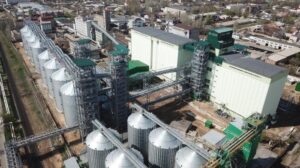
South Korean corporation POSCO International plans to resume full operation of its grain terminal in Mykolaiv region, according to a press release from the Ministry of Economy, Environment, and Agriculture following a meeting between Minister Oleksiy Sobolev and business representatives during a working trip to Odesa.
The ministry specified that the meeting discussed the prospects for developing infrastructure for storing grain and vegetable products (storage facilities and cold rooms).
“The Ukrainian side emphasized the need to develop mechanisms to protect businesses in wartime and reduce the cost of marine insurance. At the same time, the government is working on a program to support the restoration of trade routes in the Mykolaiv region,” the statement said.
The Korean delegation, consisting of POSCO International Corporation Vice President Kim Young-hoon and POSCO International Ukraine Sales Director An Suk-hyun, noted the Ukrainian government’s cooperation with the Economic Development and Cooperation Fund (EDCF). Through the EDCF and KEXIM Bank programs, Korean companies have the opportunity to participate in the transformational reconstruction of Ukraine. This includes POSCO, which has experience in implementing infrastructure projects abroad.
One of the company’s priorities is the construction of an RDF-fueled (Refuse-derived fuel) thermal power plant in Odesa. Consultations with the city administration on environmental and energy efficiency issues have already been held. The project to build a CHP plant in Odesa has been tentatively included in the list of priorities.
“The project in Odesa is very important for our ministry because it combines an investment component with an environmental component. The initiative is aimed at protecting the environment and introducing modern technologies to reduce emissions. In the future, this practice can be extended to other regions of Ukraine. The Agency for Reconstruction is submitting this project to the Unified Project Portfolio of the State, and it is expected to be evaluated by experts and subsequently approved by the Strategic Investment Council,” Sobolev said.
Regarding the implementation of a joint project with JSC Ukrzaliznytsia – the construction of a railway depot – various mechanisms for attracting investment are currently being considered, in particular, public procurement and public-private partnership instruments. The first option opens up more opportunities for Korean companies to participate in Ukraine’s recovery, while the second option allows for the localization and involvement of Ukrainian manufacturers in the project as part of the “Made in Ukraine” state policy aimed at stimulating the development of national production.
GRAIN TERMINAL, MYKOLAIV REGION, ODESA, POSCO International, TPP
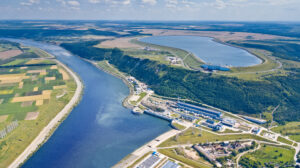
Enefit Industry AS, a subsidiary of the Estonian state-owned energy company Eesti Energia, has announced a tender for the construction of a 100 MW gas-fired combined cycle power plant as part of the Baltic Power Plant complex in Narva. According to Enefit Industry, it intends to use this power plant in the reserve capacity market to balance the power grid.
The company plans to sign a turnkey contract for the construction of the facility. The value of the state contract is estimated at €100 million, and construction is scheduled for completion in 2028.
“The power plant is designed to generate heat and electricity in cogeneration mode and to provide reserve capacity (….) It will operate on gas piston engine technology with a capacity of 4 to 13 MW. It is expected that the plant will run mainly on natural gas or biomethane and should already be capable of using up to 25% hydrogen as fuel,” the statement said.
It is noted that during the gas station’s operating hours, residual heat can be supplied to the Narva heating network.
“The situation on both the frequency markets and the day-ahead electricity market clearly shows that Estonia needs new flexible and dispatchable generation capacity. The advantage of an autonomous gas-fired power plant is its quick start-up, which helps to respond quickly when electricity prices are high,” said Enefit Industry CEO Lauri Karp, quoted in the report.
The preliminary qualification stage of the tender will last until May 29, and Enefit Industry expects to receive preliminary applications by the end of June.
The company emphasizes that the tender is a prerequisite for participation in the procurement of frequency reserve announced by the data transmission system operator Elering.
As reported, the Estonian energy company Eesti Energia has reorganized and spun off its shale extraction, processing, and liquid fuel production businesses into a separate entity, Enefit Industry AS.
“From April 1, the power plants will continue to operate as Enefit Power OU, while the liquid fuel production plants and extraction divisions will operate as Enefit Industry AS,” Eesti Energia said.
All shale-fired thermal power plants within the group perform a reserve function.
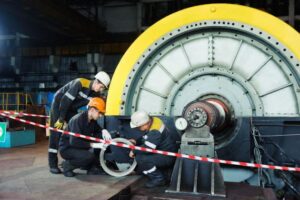
“In January-September 2024, DTEK Energy invested over UAH 2.3 billion of its own funds in the repair and restoration of thermal power plants (TPPs).
According to the company’s press service, its goal is to restore as much capacity as possible that was damaged or destroyed as a result of numerous enemy attacks on the energy sector to ensure a more reliable heating season.
As reported earlier, DTEK Energy plans to invest about UAH 3.9 billion in the repair and restoration of TPPs in 2024, which is in line with last year’s investments.
Since the beginning of the full-scale Russian invasion, DTEK Energy’s TPPs have been attacked by the enemy more than 190 times. As a result of the attacks, 56 power engineers were injured and three were killed.
In March and June this year alone, the enemy carried out seven massive attacks on the company’s TPPs. The shelling destroyed or damaged about 90% of DTEK’s thermal generation capacity.
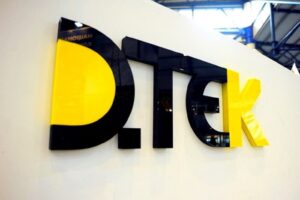
“In 2023, DTEK Energy invested about UAH 11 billion in the repair campaign at thermal power plants and Ukrainian coal mining, which is almost twice as much as in 2022, when investments amounted to about UAH 6 billion.
“Thanks to this, we managed to restore a significant part of the thermal generation capacities damaged by enemy shelling, implement the annual scheduled repair campaign at thermal power plants, and support the production of coal volumes necessary for their reliable operation,” the energy holding said in a press release on Friday.
Last year, the company’s power engineers restored nine power units after massive shelling. The renewed facilities made it possible to increase the operation of thermal generation at peak consumption.
“To prepare the equipment of thermal power plants for maximum performance in the current heating season, DTEK Energy has carried out 24 repairs of power units as part of the annual scheduled maintenance campaign,” the company said.
In addition, DTEK Energy has mothballed two additional power units with a total capacity of 500 MW to compensate for the capacities that could not be repaired before winter. Investments in the repair campaign, according to preliminary data, amounted to about UAH 4 billion, compared to UAH 2.2 billion in 2022.
As part of the repair campaign, the company purchased and stockpiled critical equipment in case of new shelling, and provided TPPs and mines with backup power sources in the form of more than 200 powerful generators.
Last year, DTEK Energy also put 26 new coal faces into operation, which allowed miners to meet their production targets and provide Ukrainian thermal power plants with enough fuel to operate during the heating season and other peaks in consumption.
According to preliminary data, the company’s investments in Ukrainian coal mining amounted to about UAH 7 billion, compared to UAH 3.8 billion in 2022.
“We went through the most difficult winter and recovered as much as physically possible after such large-scale attacks and in such a short time. And we have already come close to the equator of the current heating season. For our part, we have strengthened the resilience of thermal generation, as it bears the lion’s share of responsibility for balancing the power system during peak consumption,” summarized DTEK Energy CEO Ildar Saleev, as quoted in the press release.
“DTEK Energy provides a closed cycle of electricity generation from coal. The installed capacity in thermal power generation as of January 2022 was 13.3 GW). The company has established a full production cycle in coal mining: coal mining and enrichment, mechanical engineering and maintenance of mine equipment.

China expects Ukraine to provide state guarantees for investing $600 million in the construction of a new unit at Sloviansk thermal power plant (TPP, PJSC Donbasenergo), Liu Jun, the adviser for trade and economic issues at the Embassy of China in Ukraine, has said.
“The Chinese side is ready to invest more than $600 million in this project, provided that the Ukrainian side provides state guarantees,” he said in an exclusive interview with Interfax-Ukraine.
Jun recalled that the investment agreement between Dongfang Electric International Corporation (DEIC) and Donbasenergo for the joint implementation of the project was signed in December 2018.
“The construction of the sixth power unit is a new serious potential joint project between Ukraine and China. I am sure that its implementation will bring great benefits for both the Ukrainian people and Chinese enterprises,” he said.
As reported, the contract between DEIC and Donbasenergo provides for the construction of power units Nos. 6A and 6B of 330 MW each at Sloviansk TPP using CFB technology (burning solid fuel in a circulating fluidized bed).
The contract price is $684.296 million. Financing for the reconstruction foresees 70% of funds of a credit from a Chinese bank.
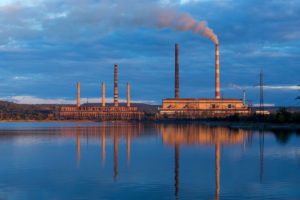
PJSC Donbasenergo by July 2020 plans to complete the introduction of the single automated system to manage the key assets of Sloviansk thermal power plant (TPP). The company said that the system allows general effectiveness of business management.
The natural obsolescence of the key production assets of the TPP, which celebrated its 65th anniversary last year, leads to an increase in the number of breakdowns, malfunctioning of the equipment fleet and, as a result, expenditure growth.
The implemented module of the plant’s resource management and statistical analysis will help reduce the number of restoration repairs. Based on the available scheduled preventive repairs statistics, the economic feasibility of using equipment is determined, a decision is made to continue the operation of the old equipment or purchase new one, the company said in the release.
Donbasenergo owns Starobesheve (located in the occupied territory) and Sloviansk TPPs with a total installed capacity of 2,880 MW, in particular Sloviansk TPP’s capacity is 880 MW. At the end of March 2017, the generation company announced the loss of control over the operation of Starobesheve TPP, as well as part of structural units located in the temporarily uncontrolled territory.